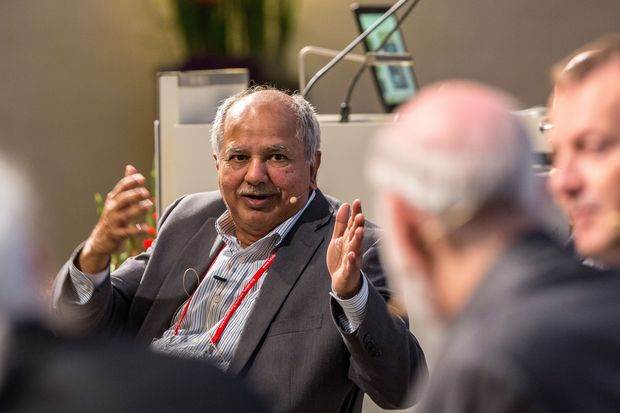Technology has considerable potential to make the world better, but those benefits are far from guaranteed. Plenty of downsides can pop up along the way, and some of them have Turing Award winners especially worried.
1. The internet echo chamber
“Technology by itself is not evil, but people can use it for bad things,” Barbara Liskov, an Institute Professor at MIT, told an audience of journalists Thursday at the Heidelberg Laureate Forum in Germany. “I do worry a lot about what’s going on.”
The ability to selectively filter out news and opinions that don’t agree with one’s own viewpoint is one of Liskov’s top concerns.
With such tech-enabled polarization, “people are no longer necessarily good citizens because they may not understand what’s going on in the world,” said Liskov, who won a Turing Award in 2008.
2. Attacks on freedom
“If I can use email, terrorists can too,” said Raj Reddy, former founding director of Carnegie Mellon University’s Robotics Institute and winner of the Turing Award in 1994. “They can communicate with impunity with encryption today.”
The challenge is to preserve freedom of speech and privacy without enabling criminals, and that raises a host of new moral and philosophical issues. To address them, “governments will violate your personal freedoms,” Reddy said.
3. Buggy IoT software
“I used to make a living as a programmer, so I appreciate how hard it is to make good software,” said Vint Cerf, who won a Turing Award in 2004 and is now vice president and chief internet evangelist at Google.
A bug in a spreadsheet that’s used to determine an important policy, for instance, could have profound consequences. So, too, could bugs in software that controls devices in the internet of things (IoT).
“We rely on the software in devices to perform properly,” Cerf said. “If it doesn’t, a house could burn or a car could go over a cliff.”
Cerf doesn’t worry about “killer robots” taking over. “I don’t think that’s the big threat,” he said. “It’s ordinary devices that have a lot of software in them that don’t work the way we expect them to.”
4. A digital ‘dark age’
Cerf also worries about the possibility that the photos, documents and other content that we save digitally today may no longer be renderable in the future because the software required to access it will have become obsolete.
“The software has to be executable 100 years from now,” Cerf said.
Using virtual machines in the cloud to emulate the necessary outdated hardware will be part of the solution, Cerf said, but other issues will also need to be worked out, including ownership of the intellectual property involved and business models to support long-term preservation.
5. Internet safety
Finally, “I worry about kids on the internet,” Liskov said. “I think it’s much harder to be a parent now than it used to be.”
Computer scientists “didn’t foresee the explosion of the internet or evil hackers and internet trolls,” she added. “When we started, we were all friends.
“What gives me hope is that we’ve encountered things like this in the past and we’ve figured out better ways to deal with them,” Liskov said. “I hope we’ll be able to do the same again. In the meantime, I worry about my granddaughter.”






![[Video] Samsung Teases ‘AI Home Experience’ Ahead of](https://loginby.com/itnews/wp-content/uploads/2025/03/1742985292_Video-Samsung-Teases-‘AI-Home-Experience’-Ahead-of-100x75.jpg)
